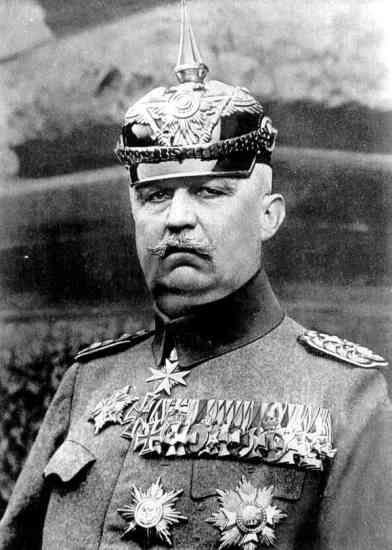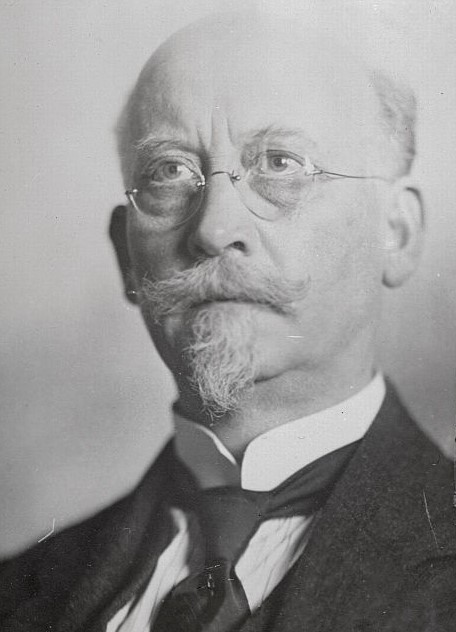Weimar: Early Years
This page will contain all the topics you need to know for the AQA Democracy and Nazism unit.
By 1918, it was clear Germany was going to lose the War. The military were exhausted, as were civilians.
In 1917, the Bolsheviks had taken power in Russia, alarming political aristocracies across Europe - that such a key state could fall so quickly. This was hardly helpful to the German aristocracy, which was quickly becoming unpopular.

Gen. Erich von Ludendorff
By the autumn, it had become clear Germany would have to sue for peace. In October, Kaiser Wilhelm II began a series of reforms to end the aristocracy, on General Ludendorff's advice:
Bringing in Prince Max was particularly handy for Ludendorff (who eventually tried to become a Nazi politician) and the Kaiser, as a left-wing government could take the blame for Germany's downfall.
On 3 October, Prince Max wrote to President Woodrow Wilson to ask for an armistice. Three weeks later, Wilson replied, demanding that before an armistice was considered, Germany would have to evacuate all occupied territory and fully democratise its politics.
This was far too much for Ludendorff, and, after failing to gather support for a final push, he resigned and fled to Sweden.
When the Peace Note became public, respect for the Kaiser diminished. It had admitted Germany couldn't win the war, and exposed the lies of the monarchist government.

Friederich Ebert

Philipp Scheidemann
On 3 November 1918, Navy sailors mutinied at Kiel against their officers, and by the following day the revolt had spread to the cities, establishing workers' councils and soldiers' councils, not dissimilar to the situation in Russia. On 8 November 1918 Bavaria, in the south of Germany, proclaimed itself a republic, bringing home to Prince Max that he had lost control. On 9 November 1918, the SPD, the German left-wing party, called on workers to join a general strike against the Kaiser. Prince Max could not afford to govern without the SPD, and so issued a false statement saying the Kaiser had abdicated. The same day, Max resigned and handed the position to the reluctant Friederich Ebert of the SPD. Fellow leading figure Philipp Scheidemann< declared a German Republic.
All this, and the Kaiser hadn't actually abdicated yet. But he didn't have much of a choice anymore. General Karl Groener told the Kaiser the army would no longer fight for him. He had no choice but to go.